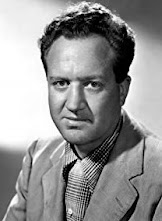Daves became interested in acting, writing, and directing theater while studying law at Stanford University. His initial foray into the film industry was as a property assistant on The Covered Wagon in 1924. After graduating from Stanford in 1927, he pursued his interest in movies and received credit for his first screenplay with 1929's So This Is College. Over the next decade, he carved a highly successful career as a screenwriter with films such as Dames (1934), Flirtation Walk (1934), an adaptation of The Petrified Forest (1936), and Love Affair (1939).
 |
| Delmer Daves. |
Yet, Horlock notes that "Daves has remained largely overlooked in scholarly literature and film retrospectives" and has not achieved the auteur status attributed to directors such as Alfred Hitchcock, John Ford, Samuel Fuller, and even Douglas Sirk (whose glossy 1950s melodramas are comparable to Daves's later films A Summer Place and Parrish). Yet, like Hitchcock, Daves was intimately involved in the screenplays for his films, even those with which he did not receive a writing credit. Horlock traces recurring themes in Daves's films in chapters devoted to political and social values, race and civil rights, and gender. Horlock also includes this insightful comment from actor Glenn Ford, who worked with Daves on 3:10 to Yuma, Jubal, and Cowboy: "Nothing happened in a Delmer Daves film that wasn't intentional, from the camera set-ups to the wardrobe."
 |
| Delmer Daves's The Hanging Tree (1959). |
As befits its subtitle, The Films of Delmer Daves: Visions of Progress in Mid-Twentieth Century America is a scholarly volume for movie fans interested in thoughtful analyses. Still, that's not to say it isn't filled with fascinating facts (e.g., Warren Beatty was the original choice for the title role in Parrish, Daves's admirers include Humphrey Bogart, Alan Ladd, and Gary Cooper). At one point in his book, Horlock states: "Despite his working within the confines of a restrictive studio system, Daves's films deserve to be examined as the work of a serious artist of the cinema." That is exactly what the author









Dark Passage, with Bogart /Bacall as more "ordinary" folks. Full advantage of the new freedom to shoot on location. Bogart more proto Richard Kimble here. Novel's author even sued The Fuge.
ReplyDeleteThe first-person viewpoint opening of Dark Passage is just brilliant!
ReplyDeleteNot exactly an auteur, but he made a lot of excellent movies. I'm particularly fond of his Westerns of the 1950s. They're right up there with the best ones of Budd Boetticher and Anthony Mann. For me "3:10" is his masterpiece.
ReplyDeleteDouglas Horlock makes a pretty convincing argument that Daves was an auteur. There are recurring themes through many of his films and he was actively involved in all aspects of filmmaking, especially writing and directing (but also costumes, set, etc.).
DeleteNever knew Delmar Daves was a screenwriter in the 1930s! Very interesting. I associate him most with his westerns, especially Jubal. Glenn Ford gave a fine performance in that one.
ReplyDeleteHey There. I found your blog using Google. This is a very well written article. I’ll be sure to bookmark it and come back to read more of your useful info. Thanks for the post. I’ll definitely return.
ReplyDeleterrecently I launch my website please Visit my online shoping website